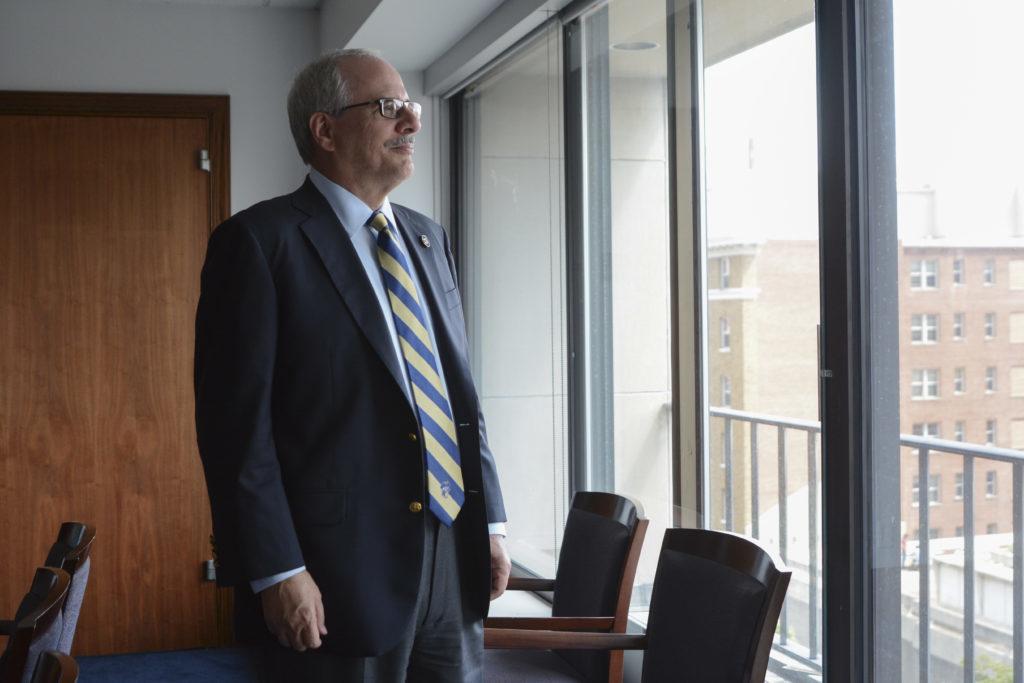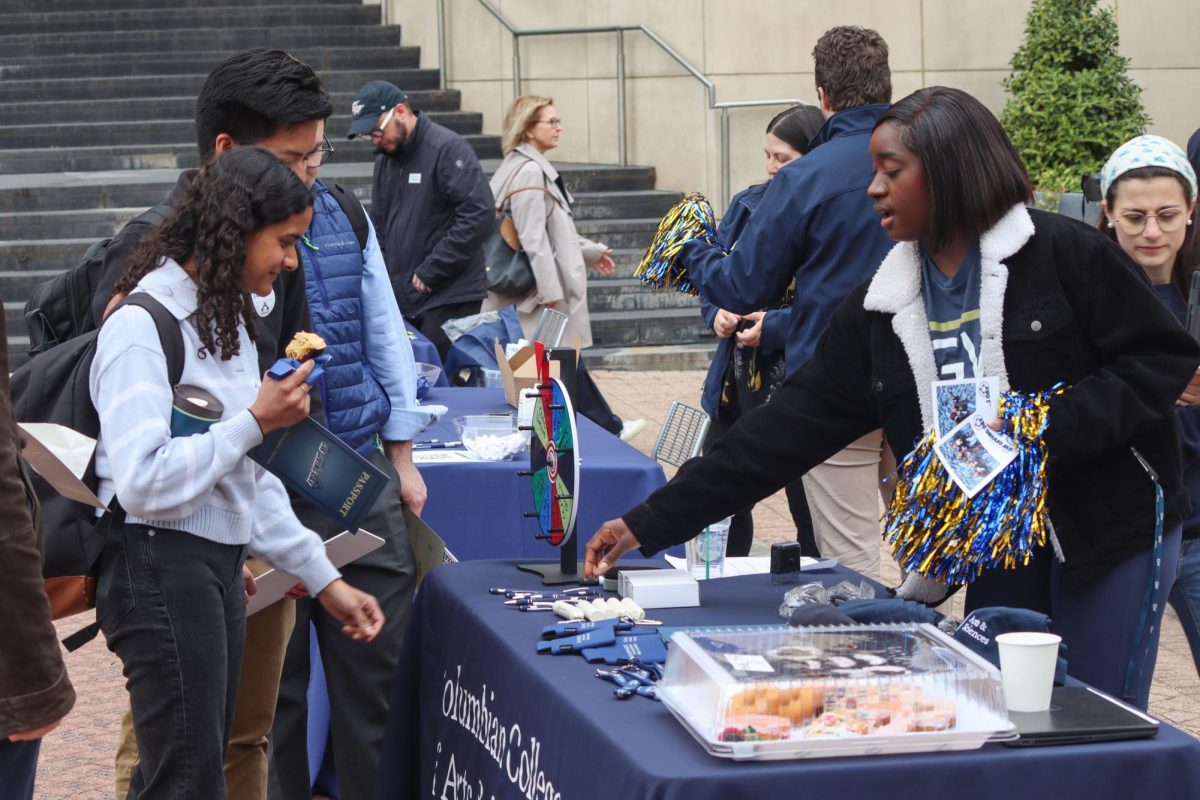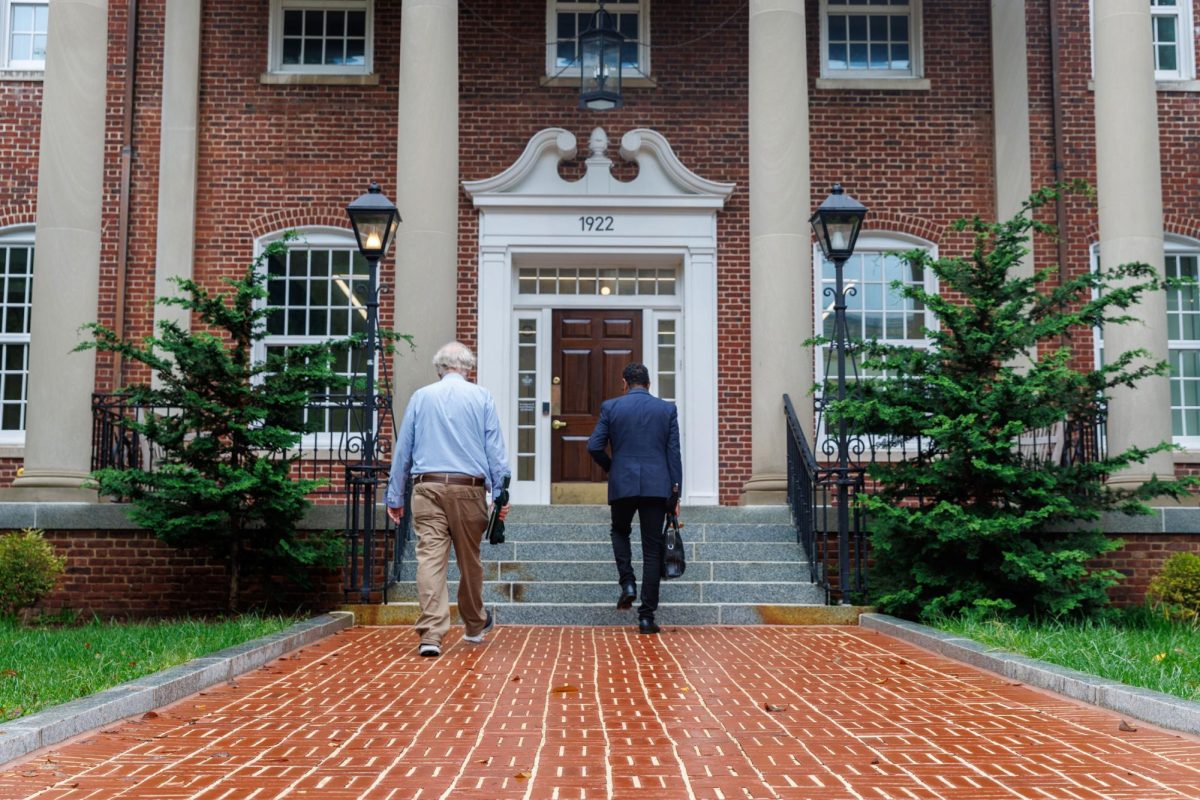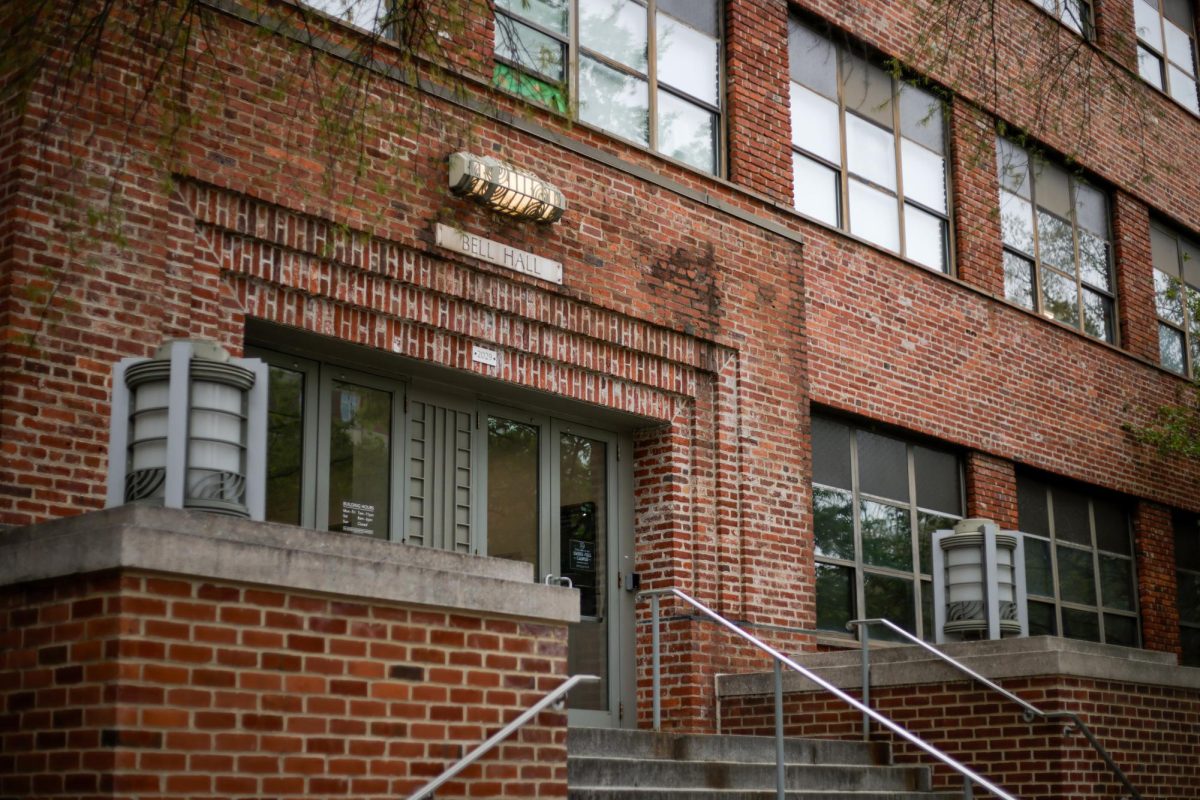Higher education administration experts said University President Thomas LeBlanc’s announcement that he will be stepping down next year comes as no surprise, given the ongoing tensions between him and the GW community.
Experts said university presidents tend to leave after faculty express doubts in their leadership, which LeBlanc experienced after a recent faculty survey indicated a loss of confidence in his administration. They said in his remaining year at GW, LeBlanc may choose to focus on behind-the-scenes work like boosting fundraising, or he could aim to leave on a high note by ensuring an easy transition for his successor.
Chris Bonneau, the president the University of Pittsburgh’s Faculty Senate, said LeBlanc may use his last year as president to focus on managing the University with a lower profile through fundraising and other initiatives that tend to receive less public attention.
“People don’t notice the president when everything’s going well,” he said. “So if the University runs smoothly, and you guys get a good entering class and budgets are stabilized and so on, then I think it’ll be fine.”
He said the faculty survey results indicated that it would have been difficult for faculty to buy into and support new initiatives from administrators if LeBlanc stayed at GW.
“In my opinion, it creates an unworkable environment,” he said.
Victor Borden, a professor of educational leadership and policy studies at Indiana University Bloomington, said outgoing university presidents generally use their last years to streamline academic programs, diversify campus spending and tackle underlying issues. He said departing presidents tend to leave long-term planning and investments to their successor.
“As long as he tries to keep things patched and goes behind the scenes more – to keep the train running, so to speak – that’s what I would do,” Borden said.
Borden said some administrators may leave with a University president, and some top leaders, like the provost, could apply for the head role. He said a provost would be a “good internal person” for a presidential role, depending on their relationship with the Board of Trustees and the type of applicant they look for.
Provost Brian Blake, who was a finalist for the position of president at the University of Rhode Island earlier this year and later withdrew, said in 2019 that his career goal was to become a University president within five years. Faculty have expressed criticism of Blake at times, but many professors view him in a more positive light than LeBlanc and Chief Financial Officer Mark Diaz.
Faculty expressed concerns in 2016 about the search process and the lack of diversity on the committee that chose LeBlanc as president, which was predominantly made up of White men.
Borden said the search for a University president usually lasts between six to eight months, excluding time taken for final negotiations with the finalist candidate. He also said many universities are looking to “adapt” to technological and social changes on their campuses.
“I think we’re going to see quicker change coming in the next 10 years or so, so someone coming in has opportunities to lead that change in a very positive way,” he said.
Noelle Arnold, a senior associate dean and professor of educational administration at The Ohio State University, said LeBlanc could choose to conduct listening sessions with the GW community on how the University can be improved to set up his successor for a smooth transition.
“Many presidents who’ve actually been in this position where they actually have a final year, you don’t find as many big campus decisions made during that final year, but it’s a lot of making sure that policy and procedures are in place for the next person,” she said.
Arnold said based on recent trends across higher education, the search for a new University president may be closed to the public, instead of an open search where the list of finalists for the position are publicly shared.
Arnold said higher education institutions have opted more for closed searches in recent years because disclosing a candidate’s identity could risk their reputation at their current institution if they don’t end up getting the job.
“One of the explanations I’ve gotten from folks is that a lot of executives are less likely to want to put themselves in this position because of that,” she said.
Arnold said officials could also make the search process for the new president more diverse by considering candidates from historically Black colleges and universities, who university leaders from predominantly White institutions don’t typically consider.
“I think boards need to be willing to look in non-traditional voices for this kind of diversity,” she said.
Wayne Davis, the president of the Faculty Senate at Georgetown University, said LeBlanc should consult the Faculty Senate and the deans to determine how to best maintain relationships with the GW community.
“He would have to work very cooperatively with whatever governance bodies there are there,” Davis said.
Board Chair Grace Speights said in an email to faculty last week after the announcement that LeBlanc would be stepping down that she was “troubled” by some professors whose contributions have done more to “foment discord” than contribute to civil dialogue. She said officials would be conducting a review of the Faculty Code to assess shared governance at the University.
Davis said despite the pandemic’s long-term impact, LeBlanc’s departure in May 2022 likely will not have particularly negative consequences for the University’s future.
“It would have been a lot harder if somebody had to come in this year because everything was in upheaval, but I think by next year things will settle down and it should be a fairly normal transition,” he said.
Ishani Chettri contributed reporting.








